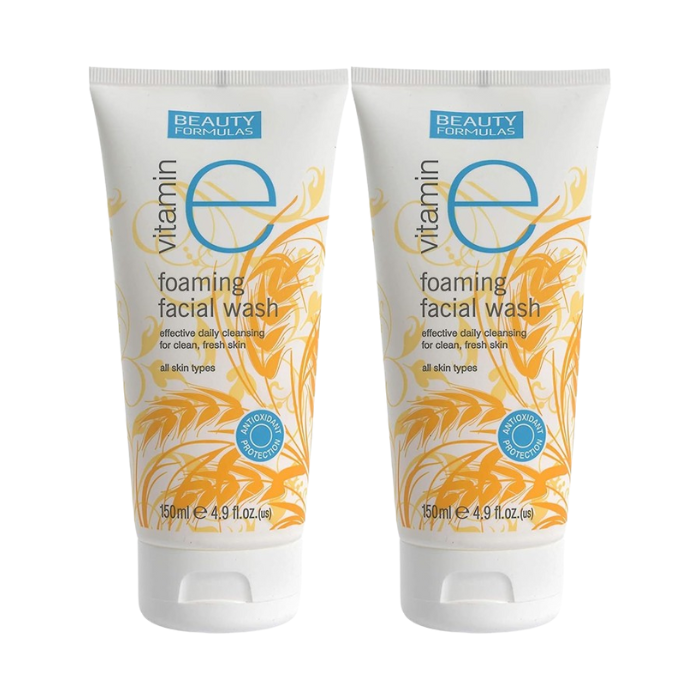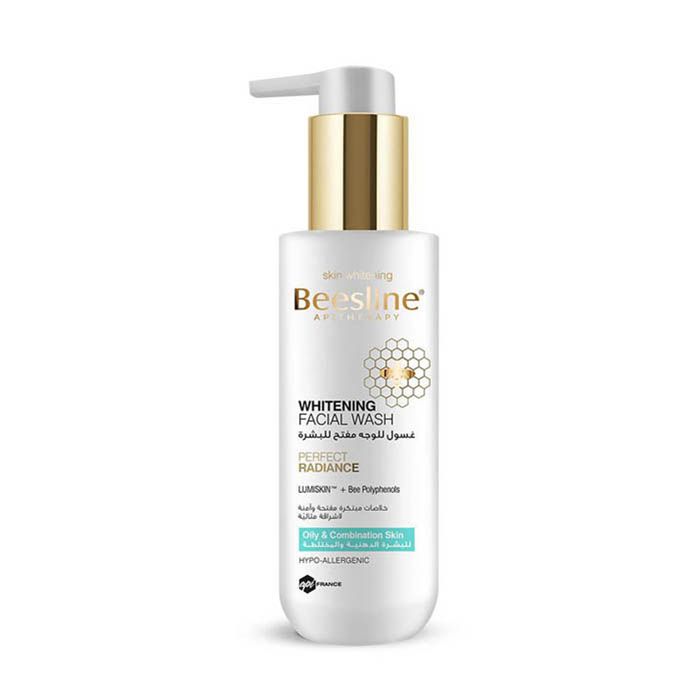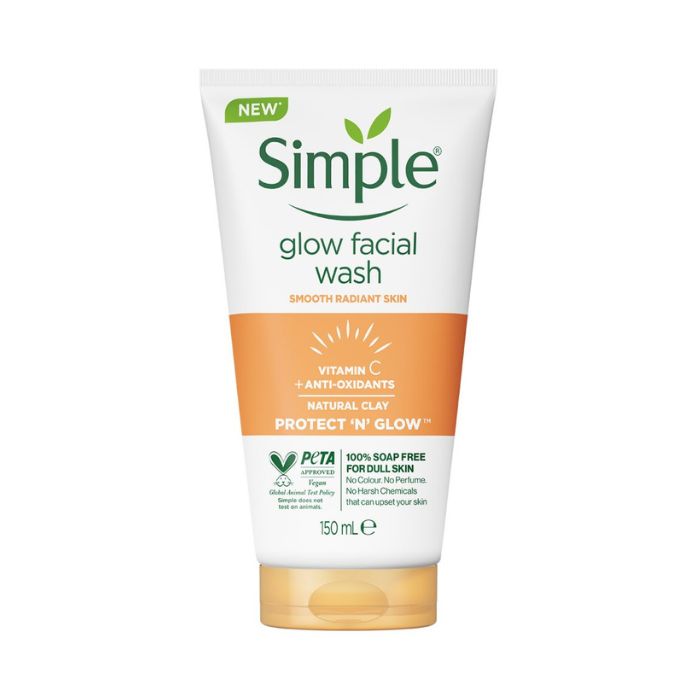best face wash for oily skin
Unveiling the Best Face Wash for Oily Skin Your: Ultimate Guide to Clear and Radiant Complexion
Sep 26, 2023, 7:03:56 AM

For the modern woman who takes pride in her appearance, maintaining healthy and radiant skin is a top priority. We understand that achieving the perfect balance of a clear complexion can feel like a never-ending quest, especially when faced with the challenges of oily skin. The gleam on your T-zone may be a natural glow, but it can also be a source of frustration when it leads to unwanted shine and breakouts.
Fear not, for we've crafted this guide with your beauty and confidence in mind. It's your insider's peek into the world of skincare tailored for women who crave that fresh, luminous look. We'll unravel the secrets of the best face wash for oily skin, revealing formulations and techniques that cater to your unique needs.
With this guide, you can unlock the key to a skincare routine that not only combats excess oil but celebrates your individual beauty. Welcome to a journey that promises to make every wash a ritual of self-care, where each cleanse brings you one step closer to that flawless complexion you deserve. Say goodbye to the hassle and hello to the allure of a face that radiates beauty and confidence, every day.
Understanding Oily Skin: Causes and Challenges

For many individuals, the journey to clear and radiant skin can be overshadowed by the challenges of oily skin. Understanding the root causes and unique challenges posed by excess oil production is the first step towards achieving a healthy, balanced complexion. In this section, we will explore the science behind oily skin, unveiling the factors that contribute to its development and the specific challenges it presents.
The Science of Oily Skin:
Oily skin, also known as seborrhea, is characterized by an overproduction of sebum, the skin's natural oil. Sebum plays a crucial role in maintaining skin health by providing protection and hydration. However, when the sebaceous glands produce excessive amounts of sebum, it can lead to a range of challenges.
Common Causes of Oily Skin:
1-Genetics: Oily skin can be hereditary, often passed down through family traits.
2-Hormonal Fluctuations: Hormonal changes, such as those during puberty, pregnancy, or menstruation, can trigger increased sebum production.
3-Climate: Hot and humid environments can stimulate the sebaceous glands to produce more oil.
4-Skincare Products: Using inappropriate or harsh skincare products can disrupt the skin's natural balance, leading to oiliness.
5-Diet: Consuming a diet high in processed foods and unhealthy fats may exacerbate oily skin.
6-Stress: High stress levels can trigger hormonal changes that influence sebum production.
Challenges of Oily Skin:
1-Acne Prone: Excess oil can clog pores, leading to acne breakouts, including blackheads and whiteheads.
2-Enlarged Pores: Oily skin is often accompanied by enlarged pores, which can be more visible and prone to congestion.
3-Shine and Makeup Issues: Oily skin can result in a persistent shine, making makeup application challenging and causing makeup to wear off quickly.
4-Uneven Texture: An uneven skin texture may develop due to the accumulation of oil and dead skin cells.
5-Skin Sensitivity: Oily skin can still be sensitive, leading to a delicate balance between managing oiliness and avoiding skin irritation.
Types of Face Washes for Oily Skin: Finding Your Perfect Match

Selecting the best face wash for oily skin involves considering your specific needs and preferences. Fortunately, there are various types of cleansers designed to cater to different skin types and concerns. Here are some common types of face washes for oily skin, each with its unique features:
1-Gel Cleansers:
Description: Gel cleansers have a lightweight, gel-like consistency that is ideal for oily skin. They effectively remove excess oil, dirt, and impurities without over-drying the skin.
Benefits: Gel cleansers provide a deep cleanse, making them suitable for individuals with oily or acne-prone skin. They often contain ingredients like salicylic acid to target oil and acne.
2-Foaming Cleansers:
Description: Foaming cleansers create a rich, airy lather when mixed with water. They thoroughly cleanse the skin and are suitable for oily skin types.
Benefits: Foaming cleansers remove oil and impurities, leaving the skin feeling refreshed. Look for sulfate-free options to avoid excessive drying.
3-Micellar Cleansers:
Description: Micellar cleansers contain tiny micelles, which are molecules that attract and lift away dirt and oil. They are typically gentle and suitable for sensitive and oily skin.
Benefits: Micellar cleansers effectively remove makeup, oil, and impurities while being gentle on the skin. They don't require rinsing, making them convenient for quick cleansing.
4-Oil-Based Cleansers:
Description: Oil-based cleansers may seem counterintuitive for oily skin, but they can be highly effective. These cleansers use oil to dissolve and remove excess sebum and makeup.
Benefits: Oil-based cleansers can effectively break down and remove excess oil and makeup without causing over-drying. They are often used as the first step in a double cleansing routine.
5-Salicylic Acid Cleansers:
Description: Salicylic acid cleansers contain this beta-hydroxy acid known for its ability to penetrate and exfoliate within the pores. They are especially beneficial for acne-prone and oily skin.
Benefits: Salicylic acid cleansers help unclog pores, reduce oiliness, and prevent acne breakouts. They offer both cleansing and exfoliating properties.
6-Charcoal Cleansers:
Description: Charcoal cleansers contain activated charcoal, known for its ability to draw out impurities and absorb excess oil.
Benefits: Charcoal cleansers can effectively detoxify the skin, remove impurities, and reduce shine. They are often used as part of a clarifying skincare routine.
7-Sulfur-Based Cleansers:
Description: Sulfur-based cleansers contain sulfur, which has antibacterial properties and helps regulate oil production. They are commonly used for oily and acne-prone skin.
Benefits: Sulfur-based cleansers can help control oiliness and target acne-causing bacteria. They are often recommended for individuals with both oily and acne-prone skin.
Choosing the Right Face Wash for Oily Skin: Your Personalized Selection Guide
With a myriad of face washes available for oily skin, selecting the perfect product can be both exciting and overwhelming. To ensure you make an informed choice, consider the following factors when choosing the right face wash for your oily skin:
1-Skin Type: Assess your skin type carefully. While you may have oily skin, it can still vary in terms of sensitivity and specific concerns. Choose a face wash that caters to your unique skin type, whether it's sensitive, acne-prone, or combination oily.
2-Ingredients: Examine the ingredient list. Look for key ingredients known for their effectiveness on oily skin, such as salicylic acid, glycolic acid, or benzoyl peroxide. These ingredients help regulate sebum production, unclog pores, and combat acne.
3-Non-Comedogenic: Opt for products labeled as non-comedogenic. These formulations are less likely to clog pores, making them ideal for oily skin that is prone to acne.
4-Sulfate-Free: Choose sulfate-free cleansers to avoid over-drying and irritation. Sulfates, such as sodium lauryl sulfate, can strip the skin of essential oils, leading to rebound oiliness.
5-Fragrance-Free: Fragrances in skincare products can sometimes irritate sensitive skin. If your skin is prone to sensitivity, consider a fragrance-free option.
6-pH-Balanced: Look for a face wash with a pH-balanced formulation. This helps maintain the skin's natural acid mantle, which is essential for skin health.
7-Dermatologist-Recommended: Products recommended or formulated by dermatologists often undergo rigorous testing and are a reliable choice for addressing specific skin concerns.
8-Reviews and Recommendations: Read product reviews and seek recommendations from individuals with similar skin types and concerns. Real-life experiences can provide valuable insights.
9-Trial and Patch Testing: Before committing to a full-sized product, consider trying samples or travel-sized versions to ensure compatibility with your skin. Perform a patch test on a small area of skin to check for any adverse reactions.
10-Consult a Skincare Professional: If you have specific skincare concerns or conditions like severe acne, consider consulting a dermatologist. They can recommend tailored products and treatments.
11-Consider Your Routine: Consider how the face wash fits into your overall skincare routine. For example, if you use other active ingredients like serums or treatments, ensure they complement each other.
12-Budget: Set a budget for your skincare products. High-quality face washes are available at various price points, so you can find an effective option that fits your budget.
Conclusion
Congratulations! You've embarked on a transformative journey to discover the
best face wash for your oily skin and unlock the secrets to a clear, radiant
complexion. Throughout this guide, you've learned the science behind oily skin,
the importance of proper cleansing, and the art of choosing the right product
tailored to your unique needs. You've also gained valuable insights into using
your face wash effectively to maintain skin health and balance.
With the knowledge and commitment, you've demonstrated that you’re well on your way to unveiling your most beautiful and confident self. May your skincare journey continue to be filled with self-love, empowerment, and the radiant glow of clear, healthy skin.










